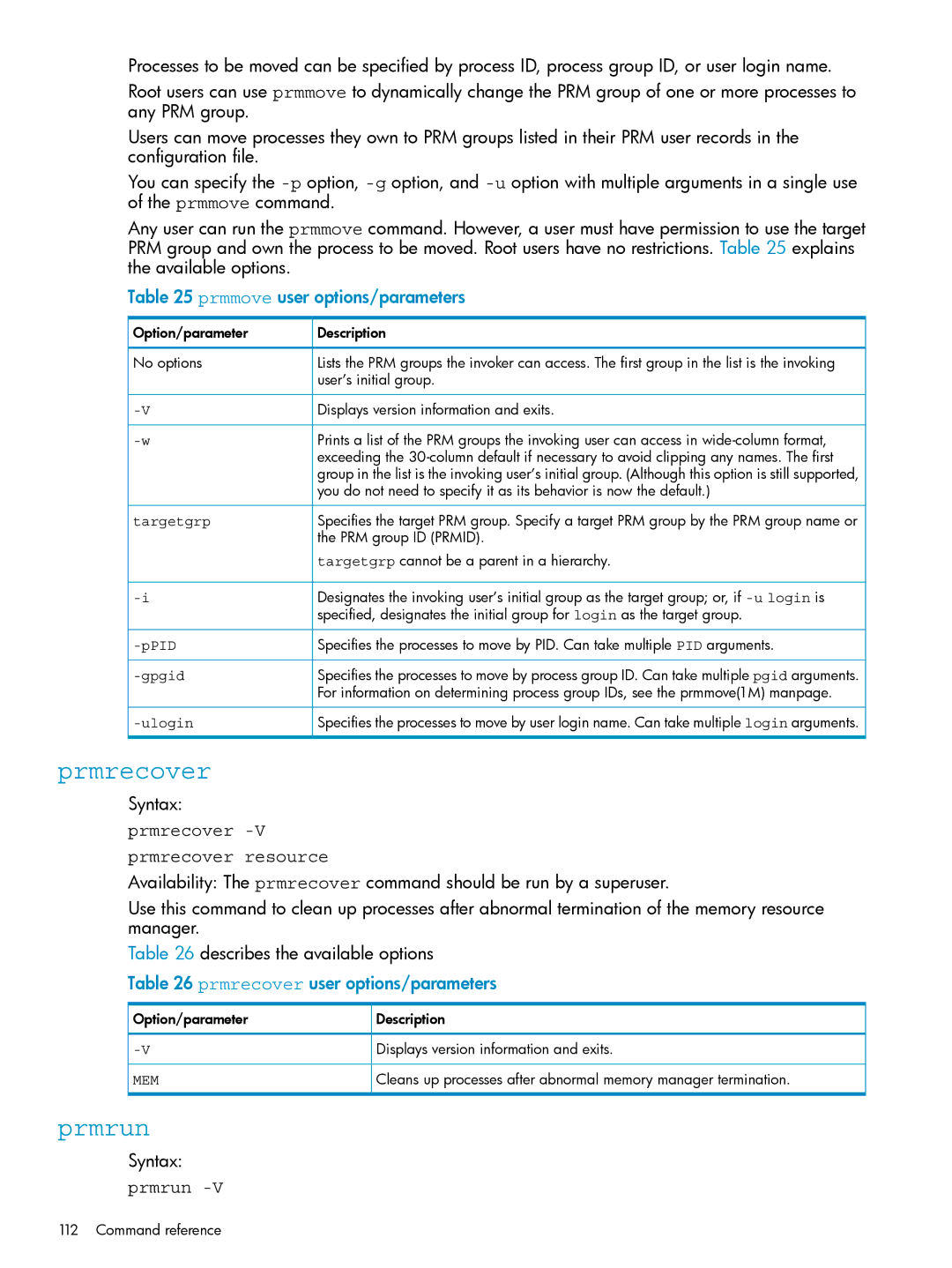
Processes to be moved can be specified by process ID, process group ID, or user login name.
Root users can use prmmove to dynamically change the PRM group of one or more processes to any PRM group.
Users can move processes they own to PRM groups listed in their PRM user records in the configuration file.
You can specify the
Any user can run the prmmove command. However, a user must have permission to use the target PRM group and own the process to be moved. Root users have no restrictions. Table 25 explains the available options.
Table 25 prmmove user options/parameters
Option/parameter | Description |
No options | Lists the PRM groups the invoker can access. The first group in the list is the invoking |
| user’s initial group. |
Displays version information and exits. | |
Prints a list of the PRM groups the invoking user can access in | |
| exceeding the |
| group in the list is the invoking user’s initial group. (Although this option is still supported, |
| you do not need to specify it as its behavior is now the default.) |
targetgrp | Specifies the target PRM group. Specify a target PRM group by the PRM group name or |
| the PRM group ID (PRMID). |
| targetgrp cannot be a parent in a hierarchy. |
Designates the invoking user’s initial group as the target group; or, if | |
| specified, designates the initial group for login as the target group. |
Specifies the processes to move by PID. Can take multiple PID arguments. | |
| Specifies the processes to move by process group ID. Can take multiple pgid arguments. |
| For information on determining process group IDs, see the prmmove(1M) manpage. |
Specifies the processes to move by user login name. Can take multiple login arguments. |
prmrecover
Syntax:
prmrecover -V
prmrecover resource
Availability: The prmrecover command should be run by a superuser.
Use this command to clean up processes after abnormal termination of the memory resource manager.
Table 26 describes the available options
Table 26 prmrecover user options/parameters
Option/parameter | Description |
Displays version information and exits. | |
MEM | Cleans up processes after abnormal memory manager termination. |
prmrun
Syntax:
prmrun
112 Command reference
